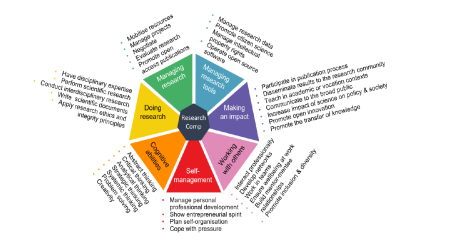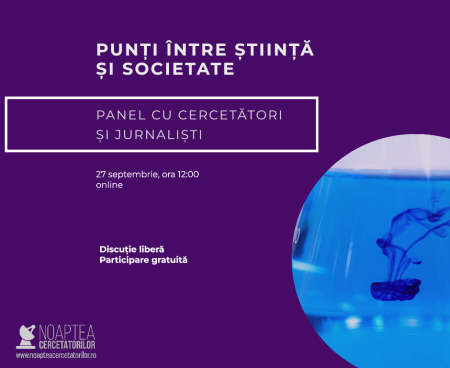Tag: popularization
 Ș
Ș
Science for citizens: organizing kits (Newsletter #36)
Read an interview with Anisia Petcu to find out why it is so important to understand baroque paintings in museums and science in laboratories. What else you'll find in the newsletter: some free kits dedicated to science for citizens, the 100 words that fail ChatGPT when doing peer reviewing, and which Romanian university recently included the communication of science in a regulation.
 C
C
Nobel Prize winner for medicine: "Scientists are also translators."
Dr. Katalin Karikó, the recent winner of the Nobel Prize in Medicine, responds personally to emails she receives from ordinary people asking her about her research, one of the conspiracists' favorite topics: the development of COVID-19 mRNA vaccines.
 💬
💬
💬Personal Science Stories (Newsletter #35)
It's been a whole summer since the last newsletter, but we're catching up now with: a discussion of what "trust" means in science, a tool that measures how abstractly you communicate, what gave away a researcher who used ChatGPT to write his scientific paper, and what we can learn from Star Trek about personal stories in science.
 🤖
🤖
🤖AI tools for academia (Newsletter #34)
If you're curious about how ChatGPT can help us, but also mess up your research, read on. I've written before about how and why researchers are preparing to speak the language of the general public, and how aggressive communication can change the way the public views science. Finally, a look from several perspectives at the recent "research prize affair" scandal.
 D
D
Behind the scenes: a press release (Newsletter #32)
Read some behind-the-scenes information about how press releases about scientific studies are written. Plus useful resources: promoting patents, a checklist for making sure you've prepared a science communication effort well, and a guide to writing an explanatory article.
 🤖
🤖
🤖 Tech talk (Newsletter #31)
We start preparations for the heated discussions at the Christmas table by finding out how to argue (or not) scientifically. I'm talking about how to communicate better in tech. And we asked artificial intelligence to convince you that it's important to talk about science to the general public. Did it succeed?
 R
R
3-in-1 rule for science speeches (Newsletter #30)
A new issue of the Science and Communication newsletter: we see how marketing helped a research lab increase the number of contracts with 300%; we talk to the organisers of the Romanian Science Festival and find out what factors make the public pay attention to scientific information
 D
D
Why and how communication researchers are trained (Newsletter #26)
A spring-fresh edition, with information on: how and why to build a communication strategy for a research project; figures on the status of women in research in our country; Romanian debates on the role of the researcher in society; a PhD on yeast in dance steps - yes, it exists.








